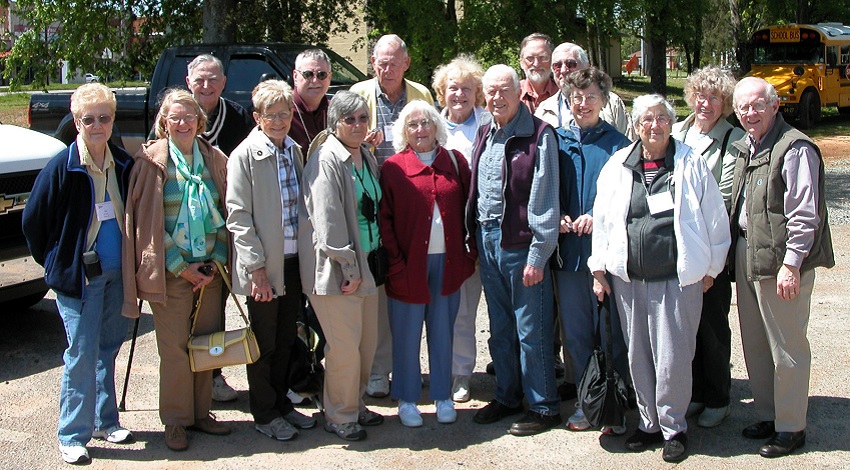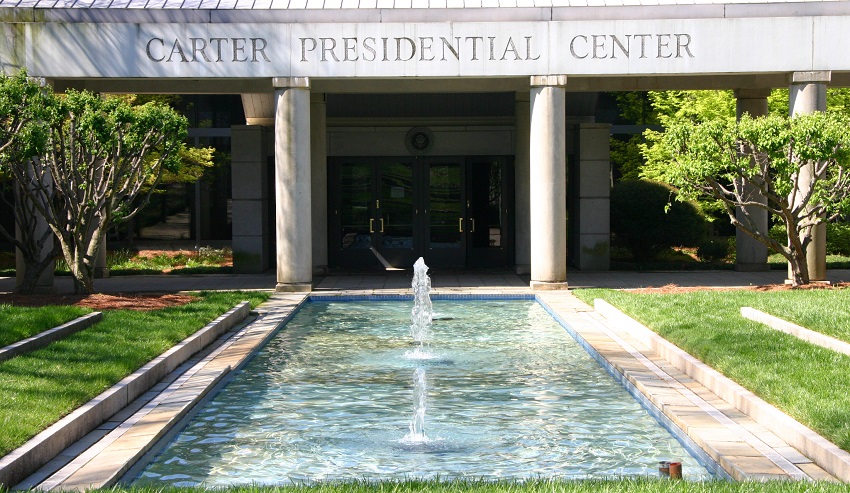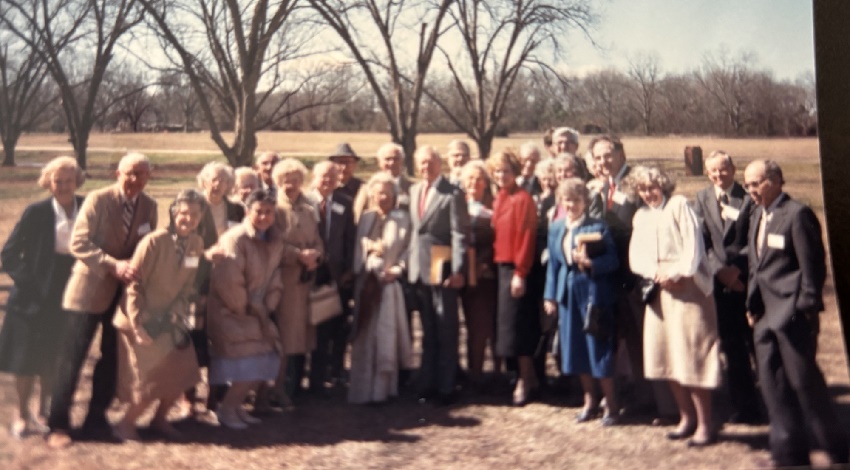A U.S. President’s Special Connection to Road Scholar
Ray Davies (of Kinks fame) once penned a song called “Is There Life After Breakfast?”, a hopeful tune about second acts in life.
When Jimmy Carter left the White House, he was 57; Rosalynn Carter was 54. Given the demands on a first family, they could be forgiven if they had simply ridden into a well-earned retirement. But as all the world knows, that was not the case. Instead, the Carters proceeded to prove that there is indeed “life after breakfast” in the best possible way: through a decades-long commitment to public service, global health, peace, justice and equality.
Road Scholar is committed to helping others create similarly fulfilling second acts in their own lives, so it is only fitting — but still delightfully surprising — that the organization and the Carters crossed paths in some significant ways.

A New Program Begins in the South
In the early 1980s, Road Scholar (then Elderhostel) partnered with the continuing- education office at Georgia Southwestern State University in Americus to offer a program about Southern culture and history. Much of the program centered around Americus and nearby Plains, the hometown to which the Carters had returned post-presidency.
Bobbie Duncan, then in charge of the university’s continuing-ed programs, recalls that it took some convincing to get her president to agree that housing a group of retirees in campus dormitories when school was not in session was a good idea, but eventually he relented.
Duncan began searching for a Group Leader for the program. No stranger to bold, outside-the-box thinking (she would later start her own business), she thought, “Why not approach Dan Ariail?”
Ariail was the pastor of the Maranatha Baptist Church in Plains, where Carter was a congregant and regular Sunday School teacher. Pastor Ariail was very interested in the Group Leader role, and Duncan brought him on board.
Capturing the Former President’s Attention
As Ariail settled into the role, he began talking enthusiastically to the former president about the Elderhostel program. Carter allowed as to how he’d like to meet these people who were coming from all over the U.S. to learn about Plains and the surrounding area. Soon, in addition to experiences in local cotton fields, on peanut farms and at historic sites, Road Scholar participants were sitting down with the former president for lunch at Mom’s Kitchen in Plains.
Many times after that, when a new group arrived and Carter wasn’t busy on his Carter Center project, he would greet them and have lunch with them. Eventually he began inviting them to his Sunday School classes, and that became part of the Road Scholar experience. Participants from those days treasure the photos they took with the former president at the church.
Jimmy wasn’t done. One of the program experts in Plains at the time was Jan Williams, who had been the nanny for the Carters’ daughter, Amy, during the White House years. Carter told Williams he’d love to ride along as the Road Scholar groups explored Plains by bus. Williams said he’d be more than welcome to join, and jokingly told him he could add his two cents but she was the guide!
So it was that Road Scholars were treated to an exploration of Plains with its most famous resident. In fact, after some cajoling from Carter (and careful vetting of the participants), the Secret Service even allowed the bus onto the well-guarded grounds of the Carters’ home to get an up-close look at the residence. Duncan says Carter simply loved the entire experience — as did the participants, of course, getting the surprise of their lives.
Sometimes, surprise worked the other way. One program participant, who had been Carter’s professor at the U.S. Naval Academy, said he would love to surprise the former president with a visit. Duncan worked with the Secret Service to get clearance for the professor, who was then able to travel to the Carter residence and reminisce with his former student. (One can imagine the conversation: “So, James, have you made anything of yourself?”)

When Bobbie Met Rosalynn
Meanwhile, Road Scholar was drawing the attention of another Carter as well. The Secret Service phoned Bobbie Duncan one day, saying that the former first lady would like to pay her a visit.
Rosalynn Carter was writing a book, to be called “Everything to Gain: Making the Most of the Rest of Your Life,” offering up the couple’s own renewed commitment to a fulfilling and meaningful life as inspiration to others. She sat down with Duncan to talk about how Elderhostel was transforming the idea of lifelong learning, and ultimately praised the organization in the book for its exemplary commitment to older Americans.

Moving Forward
As time passed, the former first couple grew increasingly busy with their public-service commitments around the world. Meanwhile, Road Scholar participants had begun to express interest in a broader view of Southern culture, beyond the confines of Americus and Plains.
Bobbie Duncan was prepared to help. Earlier, when the university had decided the programs were consuming resources it needed elsewhere, Duncan — unwilling to let an experience disappear that meant so much to so many — had struck out on her own, and taken the program with her. As founder of the Center for Educational Adventure (CEA), she now set about looking for new experiences she could build for Road Scholars, a quest that led to the development of programs on civil and human rights (in which Atlanta’s Carter Center figures prominently), as well as other programs throughout the South, from Nashville to Asheville, and from Georgia’s barrier islands to the Florida coast.
The CEA — which Duncan continues to lead energetically at the age of 80 — now manages dozens of Road Scholar programs annually. But while they all feature the kind of signature experiences that are the hallmarks of the CEA, none of them currently boast a former leader of the free world riding along on the bus.
In “Is There Life After Breakfast?”, Ray Davies emphatically answers the title question with “Yes there is!” Jimmy and Rosalynn Carter’s lives were shining examples. Bobbie Duncan’s is as well. And every day, adventurous, inquisitive Road Scholars continue to prove the point. So here’s to life after breakfast!

